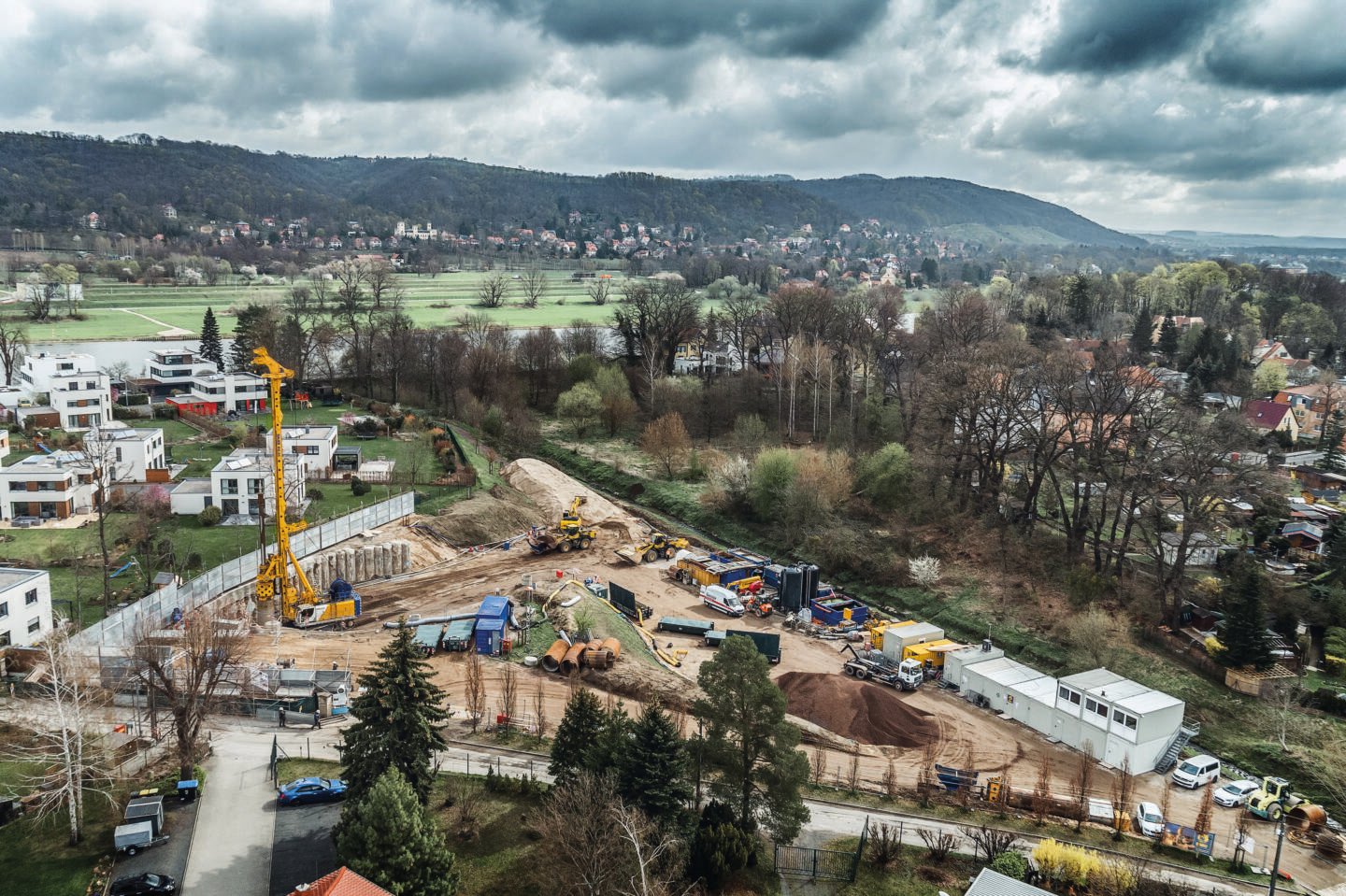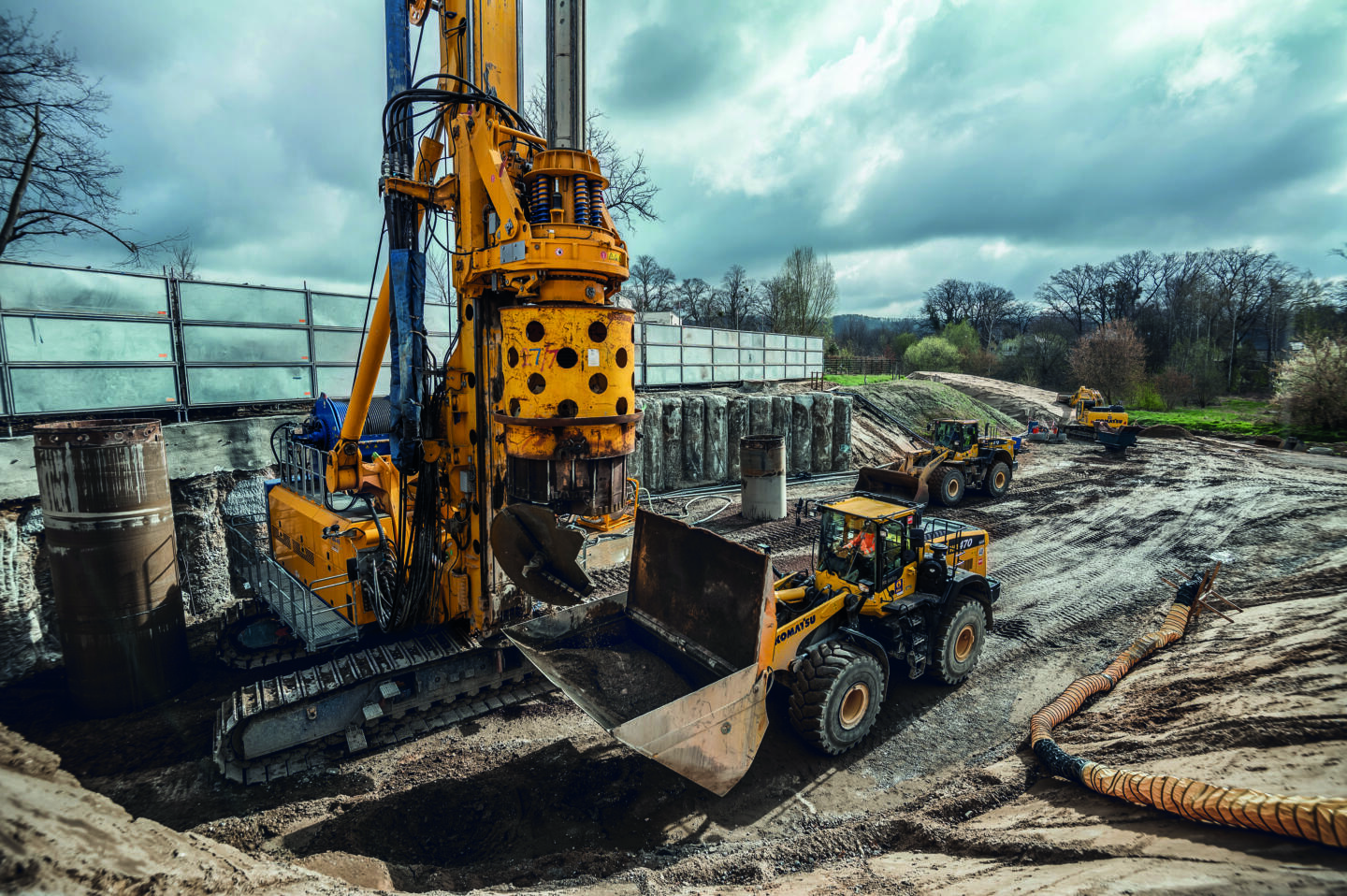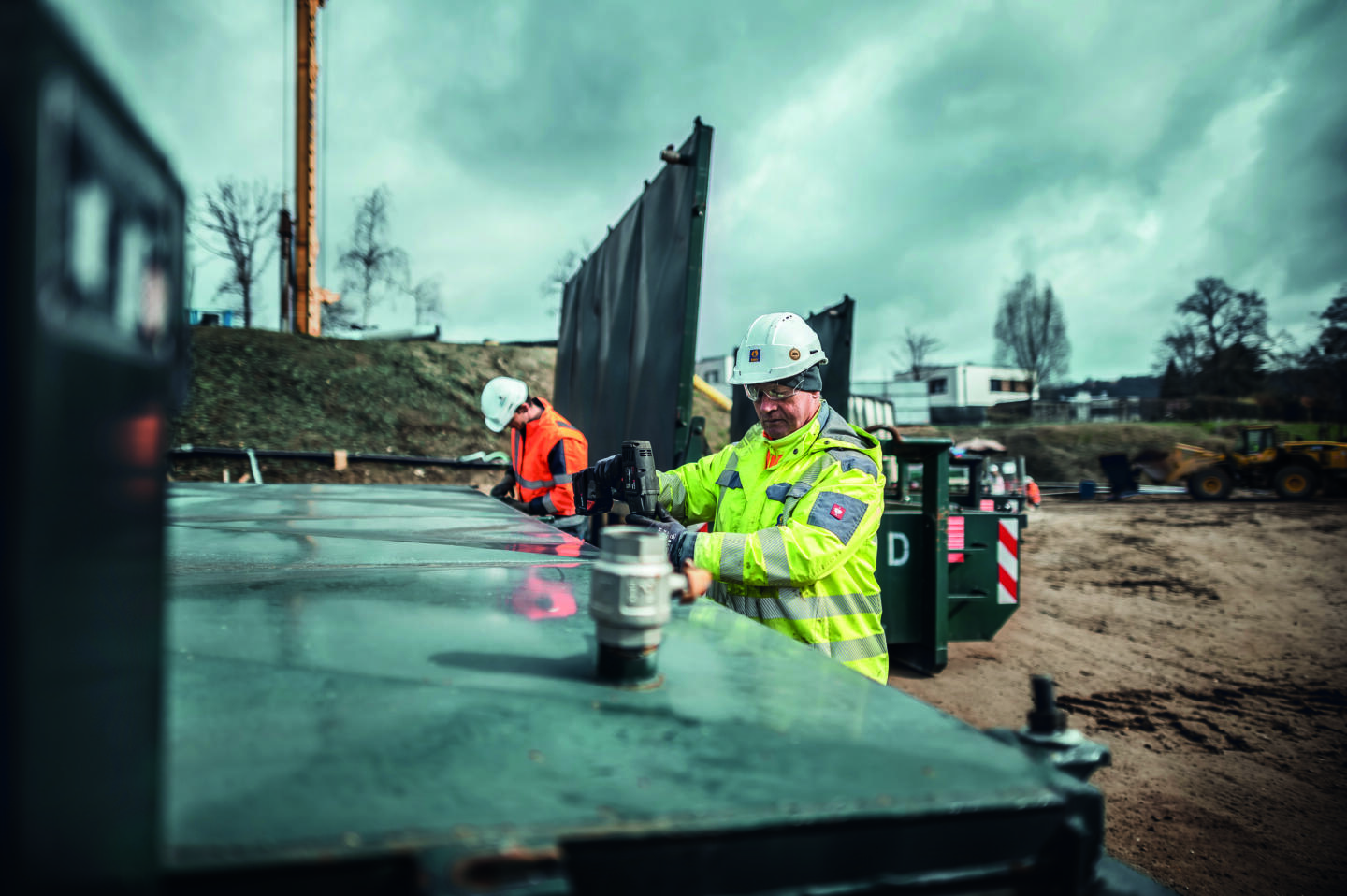It can take perseverance to transform a contaminated site into an unpolluted space. This was also the case in the Laubegast district in Dresden: On a site where the soil and ground water had been polluted by the operation of a chemical laundry plant over the course of decades, remediation work funded by the EU began more than 20 years.

In October 2020, Bauer Umwelt, the environmental division of Bauer Resources, finally began its work on the former Schoof company premises with an area of 870 m2. The order: Soil remediation with subsequent ground water treatment. After some preparatory activities, heavy equipment was brought in to carry out the soil remediation in January 2021: a 30 t excavator, two wheel loaders and a Bauer BG 46 drilling rig. Following extreme safety precautions, a total of approximately 3,500 m3 of soil must be excavated and 6,000 m3 of contaminated soil material will be replaced to a depth of 15 m using largescale boreholes (diameter: 1,800 mm). Once excavation and drilling has been completed, the soil material can be treated and partially refilled.
“The chosen method makes it possible to significantly reduce the gas release of hazardous volatile chlorinated hydrocarbons, including tetrachloroethylene and trichloroethylene. During drilling, the contaminated air is constantly extracted and residual contaminants are bound using fog guns. This is particularly important because there is a residential building directly adjacent to the property that is being remediated,”
emphasizes Uwe Schlenker, Head of Sales East Germany at the Bauer Umwelt Division of Bauer Resources.

Specialized knowledge is also required in other areas: Since the drilling work often involves moving massive amounts of soil on the site, the adjacent residential area was structurally secured as a precautionary measure. To accomplish this, the large diameter drilling rig was used to construct a pile wall with a diameter of 1,500 mm up to a depth of 21 m. In addition, an emission and noise barrier with a height of 3 m and a length of 65 m diminished the spread of exhaust gases and reduced the noise level. To avoid exceeding the limit values, experts at Bauer precisely measure the emissions and vibrations in real time using the latest measuring devices. If the values are exceeded, the SMS warning system immediately alerts site personnel so they can introduce countermeasures.
“This allows us to ensure uncompromising quality assurance on the site. Through the precautionary measures we adopt, as well as continuous monitoring, we are able to prevent damages and protect the buildings,”
explains Lutz Hupfer, Site Manager at the Bauer Umwelt Division of Bauer Resources, adding: “Safety is always our absolute top priority.”

Lutz Hupfer’s team has everything under control and has accomplished a great deal over the past several months: constructing a concrete pile wall with 31 concrete piles, executing 90 replacement borings, replacing 1,730 m3 of soil, and removing and disposing of 4,800 t of contaminated materials in gas-tight containers.
Last but not least, the experts at Bauer ensure clean ground water that almost achieves drinking water quality. For this purpose, a ground water treatment plant was constructed to clean approximately 60 m3 of polluted ground water per hour until the end of the year using mechanical and biological filter layers, for a total of approximately 300,000 m3 by the end of operations. Once Bauer has completed its remediation work, this contaminated site will disappear from Dresden’s urban landscape after many years.


 Copyright 2017-2025 All rights reserved.
Copyright 2017-2025 All rights reserved.